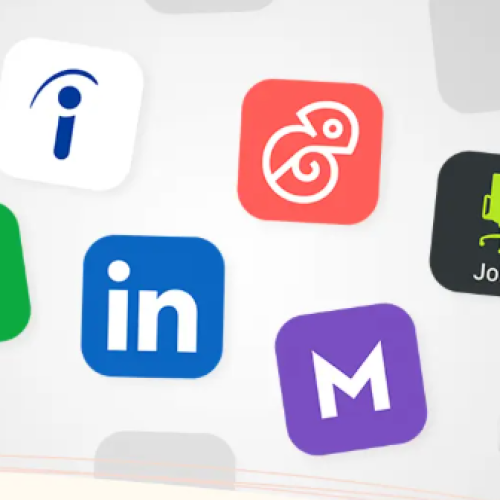Table of Contents
Toggle1. Introduction: The Remote Work Revolution
In 2019, remote work was a nice-to-have. In 2020, it became a necessity. In 2025, it’s the new normal—and it’s here to stay.
Whether you’re working from your bedroom in Dar es Salaam or a café in Berlin, remote work has reshaped how we think about productivity, freedom, and lifestyle. The days of commuting in traffic, rigid 9-to-5 hours, and being tied to a physical office are fading fast.
But here’s the big question: how do you make remote work, work for you?
In this guide, we’ll explore everything you need to know about working remotely in 2025—from the tools and trends to the challenges and incredible opportunities it brings. Whether you’re an employer, employee, freelancer, or just curious, you’re about to learn how to thrive from anywhere in the world.
2. What Is Remote Work, Really?
Remote work refers to any job done outside of a traditional office environment. It might be from home, a co-working space, a coffee shop, or even while traveling.
🔑 Types of Remote Work
-
Fully Remote: No physical office at all (e.g., GitLab, Basecamp).
-
Hybrid: Some in-office, some remote (e.g., Google, Microsoft).
-
Freelance/Contract Work: Independent work from anywhere.
❌ Common Myths About Remote Work
-
“Remote workers are lazy.”
-
“It’s just for techies.”
-
“You can’t build a career remotely.”
Reality? Remote workers are often more productive, happier, and work across every industry—from education and marketing to healthcare and logistics.
3. The Rise of Remote Work: Global Trends in 2025
📈 Stats That Prove Remote Work Is Thriving
-
62% of global employees work remotely at least once a week.
-
In Africa, remote job listings increased 300% from 2021 to 2024.
-
40% of Tanzanian startups are now fully remote or hybrid.
Remote work is no longer a privilege. It’s a competitive advantage. Companies that embrace it access a global talent pool, reduce costs, and foster better employee well-being.
🌍 Remote Work in Africa
In countries like Tanzania, Kenya, and Nigeria, remote work has opened doors for global freelancing, remote customer support, and tech outsourcing. Platforms like Upwork, Fiverr, and Andela are connecting East African talent with global employers.
📌 Example: Sarah, a graphic designer in Arusha, now works remotely for a startup based in the UK. She earns three times her previous income—all while staying close to her family.
4. The Benefits of Remote Work (And Why Everyone Wants In)
Remote work isn’t just convenient—it’s life-changing. Here’s why:
👩💻 For Employees:
-
Flexibility: Choose your hours and location.
-
Productivity: Fewer distractions, more focus.
-
Work-life balance: More time for family, health, and hobbies.
-
Cost savings: No commuting, lunch expenses, or office attire.
🏢 For Employers:
-
Lower overhead: No need to rent office space.
-
Wider talent pool: Hire from anywhere in the world.
-
Employee retention: Happier employees stay longer.
-
Scalability: Easier to grow without expanding office infrastructure.
🧠 Example: A tech startup in Zanzibar hired remote developers from Nairobi and Lagos. They saved over $50,000/year in office costs and gained round-the-clock productivity.
5. The Challenges of Remote Work (And How to Overcome Them)
Of course, remote work isn’t perfect. There are real challenges—but they’re solvable.
😔 1. Isolation and Loneliness
Solution: Schedule daily video calls, join co-working spaces, or engage in online communities like remote.africa or Indie Hackers.
💬 2. Communication Gaps
Solution: Use tools like Slack, Zoom, Notion, and Google Meet. Establish clear communication protocols and document everything.
🔋 3. Burnout and Overwork
Solution: Set boundaries. Use tools like Clockify to track time, and block “off” hours for rest.
🌐 4. Tech or Internet Problems
Solution: Always have a backup (data bundle, generator, second laptop). Tools like Starlink are now making rural connectivity more reliable in East Africa.
🔧 Real Example: James, a remote data analyst in Dodoma, uses a solar battery and wireless hotspot to stay productive during outages.
6. The Best Remote Work Tools in 2025
Here’s your remote work toolkit for maximum productivity and collaboration:
💼 Project Management
-
ClickUp – All-in-one platform
-
Asana – Easy task delegation
-
Trello – Visual boards for tasks
💬 Communication
-
Slack – Chat + integration
-
Zoom – Virtual meetings
-
Google Meet – Light, fast video calls
🕒 Time Tracking
-
Toggl – Simple time logging
-
RescueTime – Productivity insights
-
Clockify – Free and easy
📂 File Sharing and Docs
-
Google Workspace – Docs, Sheets, Drive
-
Dropbox – Cloud storage
-
Notion – Notes, databases, docs
💡 Pro Tip: Pick tools your team loves and keep the stack minimal—too many apps = confusion.
7. Best Practices for Remote Workers
Success in remote work isn’t just about where you sit—it’s how you work.
✅ 1. Stick to a Schedule
Use a calendar (like Google Calendar) to define work blocks. Include breaks and end your day at a fixed time.
✅ 2. Design a Real Workspace
Even a small corner with a desk and chair makes a difference. Avoid working from bed—it kills your back and your motivation.
✅ 3. Communicate Clearly
Say more, not less. Write with clarity. Overcommunicate your progress.
✅ 4. Invest in Good Equipment
-
Noise-cancelling headphones
-
Reliable laptop
-
Backup Wi-Fi/data connection
✅ 5. Keep Learning
Use your flexibility to upgrade. Try Coursera, LinkedIn Learning, or free YouTube tutorials to stay ahead.
🔥 Example: Aisha in Mwanza used her extra time from remote work to finish a Google UX Design course—and landed a promotion.
8. How to Manage a Remote Team Effectively
Managing a remote team takes intentional leadership. Here’s how successful managers do it:
🤝 1. Trust Your Team
Avoid micromanaging. Set goals and let people figure out the “how.”
📊 2. Create Accountability
Use weekly check-ins, dashboards, or OKRs to track progress.
📅 3. Set Communication Norms
-
Daily check-ins? Weekly meetings?
-
Asynchronous or synchronous?
🌍 4. Build a Strong Remote Culture
Celebrate birthdays, have virtual hangouts, share wins. Culture isn’t just ping pong tables—it’s how people feel at work.
🛠️ Tools for Managers
-
Loom: Record and share video updates
-
15Five: Performance check-ins
-
Basecamp: Async collaboration
9. The Future of Remote Work: What to Expect Beyond 2025
🚀 AI and Automation
Expect AI assistants, smart scheduling, and automated reporting. This will boost productivity, not eliminate jobs.
🧳 Digital Nomad Visas
More countries (like Portugal, Indonesia, and Kenya) now offer visas for remote workers. Tanzania may soon join.
🏠 Hybrid Workplaces
Remote won’t mean working alone. Hybrid setups with coworking hubs, retreats, and local meetups are rising.
🌐 Metaverse Workspaces
Companies like Meta and Microsoft are investing in virtual offices. Imagine joining meetings using VR headsets from home.
💭 Vision: You could be attending a virtual conference in Dar while sipping kahawa on your porch in Bagamoyo.
10. Final Thoughts: Embrace the Freedom of Remote Work
Remote work isn’t a trend—it’s a transformation.
It’s changing lives across the globe, offering more freedom, flexibility, and opportunity than ever before. Whether you’re a single mom in Morogoro, a student in Zanzibar, or a seasoned engineer in Nairobi, remote work opens the world to you.
If you’re just starting, don’t worry—it’s not about being perfect. It’s about being consistent, curious, and connected.
🌟 Take Action: Update your CV for remote roles. Explore Upwork, We Work Remotely, or Remote OK. Start a blog. Join a remote community.








